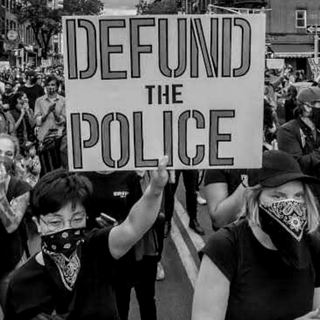U.S. Dictionary Merriam-Webster has agreed to change its definition of racism after Kennedy Mitchum, a black student from Iowa, emailed them to point out their current definition was quite superficial, and lacked any mention of systemic oppression.
Mitchum told the BBC people on social media often tried to invalidate her experiences of racism by copy-pasting Merriam-Webster’s definition of the phenomenon — “racial prejudice or discrimination” and “a belief that race is the primary determinant of human traits and capacities and that racial differences produce an inherent superiority of a particular race.” When Mitchum recounted racist treatment she had encountered in her school or college, she says she was often met with trolls who claimed racism could only occur if the person on the other end believed their race was superior to hers.
“They were saying: ‘You’re in [university], so what do you mean? You have privileges as well,'” Mitchum told the BBC. “I said it’s not about that, it’s about the hurdles that I had to jump over because of the colour of my skin and the systems that are in place.”
She reached out to Merriam-Webster to ask them to amend their definition, to include racism as “both prejudice combined with social and institutional power. It is a system of advantage based on skin color.” One day later, she received a response from the institution, promising they’d revise the dictionary accordingly.
Related on The Swaddle:
Linguists Declare the 2010s the Decade of the Pronoun
“It could be expanded … to include the term systemic and it will certainly have one or two example sentences, at least,” Peter Sokolowski, Merriam-Webster’s editorial manager, told Mitchum, the BBC reported. The revision will be made by August, he said.
The Swaddle looked into how other types of systemic oppression, such as sexism, are handled by the institutions we have entrusted to define complex terms for us. Merriam-Webster defines sexism as “prejudice or discrimination based on sex especially: discrimination against women” and “behavior, conditions, or attitudes that foster stereotypes of social roles based on sex.” The Oxford definition defines sexism along similar lines. We encounter a similar problem here — anybody who understands sexism this way, without an understanding of systemic methods of oppression of women, and of other genders, can very easily convince themselves they’re not sexist, as long as they don’t hold any overt prejudices and don’t willfully antagonize others on the basis of their gender. This, however, fails to hold entire systems accountable for perpetuating sexism and focuses the blame solely on individuals whom we know often find ways to absolve themselves.
It’s the difference between a white person saying ‘I have black friends so I can’t be sexist’ or a cishet man saying ‘I believe in equality,’ and them saying ‘I acknowledge the part I play in a system that is racist, or sexist.’
The way we define a concept often determines how we understand it. Without the systemic lens to institutional oppression — racism, sexism, classism, casteism, religious discrimination — current definitions will fail to inculcate the breadth of a problem in those who evaluate themselves and live their lives by such definitions.




